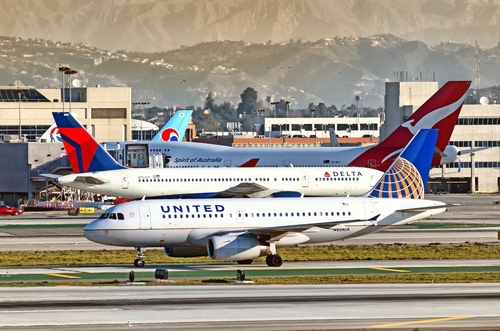A congressional hearing on infrastructure concerns for the air transportation industry was dominated instead by worries over government-subsidized Gulf state airlines and the recent controversy over Norwegian Air International and its use of Ireland as a “flag of convenience,” which critics say allows them to skirt U.S. labor laws.

Republicans and Democrats on the House Transportation Subcommittee on Aviation expressed ongoing concerns about American airlines’ ability to compete with government-owned Emirates, Qatar Airways and Etihad Airways, which they say use government subsidies to violate international Open Skies agreements.
Lawmakers said they also worry about the new entry into the U.S. market, Norwegian Air, a low-cost carrier that uses Ireland as a domicile. The start-up airline, they said, has cheaper labor costs because crews work on short-term, non-union contracts.
“We cannot compete with that,” said U.S. Rep. Dan Lipinski (D-IL), a member of the subcommittee.
Sara Nelson, the international president of the Association of Flight Attendants, told lawmakers the Norwegian Air labor strategy would jeopardize U.S. jobs in the industry. Norwegian’s model allows airlines to establish operations in countries with the lowest labor standards, she said, adding that other European airlines, including SAS and Air France, are already changing their business plans to duplicate Norwegian’s.
“While we have been vocal in our opposition to the NAI foreign air carrier permit, we want to be clear: our fight against the flags of convenience business model is also a fight to preserve good jobs,” Nelson said.
“The Norwegian thing is horrendous, jeopardizing American jobs,” said U.S. Rep. Michael Capuano (D-MA), one of 108 Congress members who signed a petition urging the Trump administration to revoke the recently granted Norwegian Air permit to land in the United States.
Wednesday’s session was the third in an ongoing series of hearings by the Transportation Committee on America’s infrastructure needs, in preparation of a major funding bill.
Nelson called on members of Congress to include in the FAA’s reauthorization bill an increase in minimum rest periods for flight attendants to 10 hours between flights, from the current eight hours, which she said is inadequate. Capuano agreed with Nelson and said the eight-hour period barely gives attendants enough time to travel between airports, eat a meal, relax and sleep, then return to the airport.
Several witnesses testified to a growing shortage of certified airline pilots.
Russell Childs, CEO of SkyWest Inc., said within a decade, cumulative demand for pilots is forecast to reach 50,000 pilots, creating a shortfall of commercial airline pilots of around 15,000.
“A shortfall of this magnitude would necessitate parking about 1,500 aircraft,” Childs said. This number corresponds to roughly two-thirds the regional airline fleet in operation today, according to Childs, whose company provides regional air connections for American Eagle, United Express and Alaska Air. He urged Congress and the FAA to consider alternative paths to pilot certification.
Several subcommittee members endorsed federal subsidies for pilot training, similar to the federal student loan program. Brad Tilden, CEO of Alaska Air Group, who was testifying at the hearing, said he supports some kind of federal loan program for pilot training.
Tilden also called on lawmakers to enhance the ability of smaller carriers like his to access larger airports. He also called for speeding of the ongoing modernization of the air traffic control system and for the separation of the air traffic control system into a distinct agency. But he stopped short of endorsing proposals to privatize the ATC.
Charles Leocha, chairman and co-founder of Travelers United, a consumer lobby, urged Congress for legislation that would protect airline passengers from the event of a computer outage that delays or cancels flights. “Airlines should not be able to treat them as ‘acts of god,’” he said, adding passengers should be afforded full refunds on cancelled flights or replacement tickets that are good for a full year.
U.S. Rep. Peter DeFazio (D-OR) said he has introduced a bill that would clarify an airline’s obligations in the event of an IT stoppage that causes cancellations or delays.
Several witnesses and lawmakers also expressed opposition to the FAA proposal to allow cellphone calls on flights. Nelson, whose organization represents 50,000 attendants, said her members are concerned that passengers will be overhearing business or personal calls they want to avoid and are unanimously opposed to the proposal. She also worried that in-flight cell service could help terrorists communicate in real-time with ground planners.
Also testifying at the hearing was Joseph Hete, CEO of Air Transport Services Group, a provider of air cargo services, who said his company opposes proposals to ban lithium batteries, a high risk for explosions, from cargo flights.